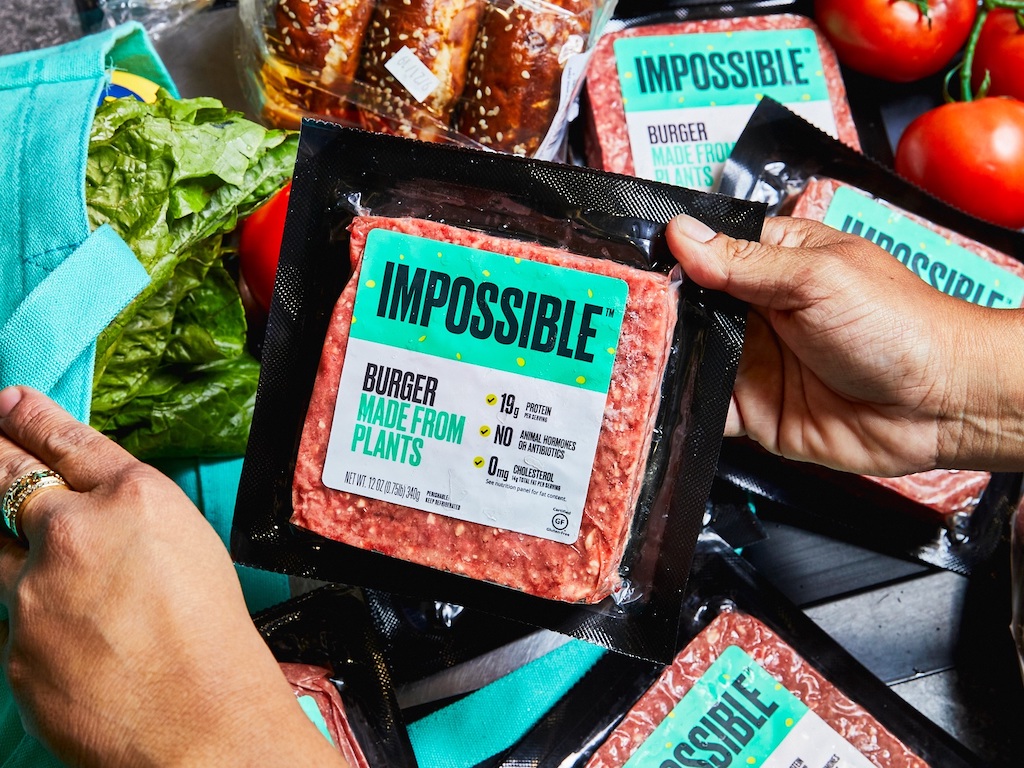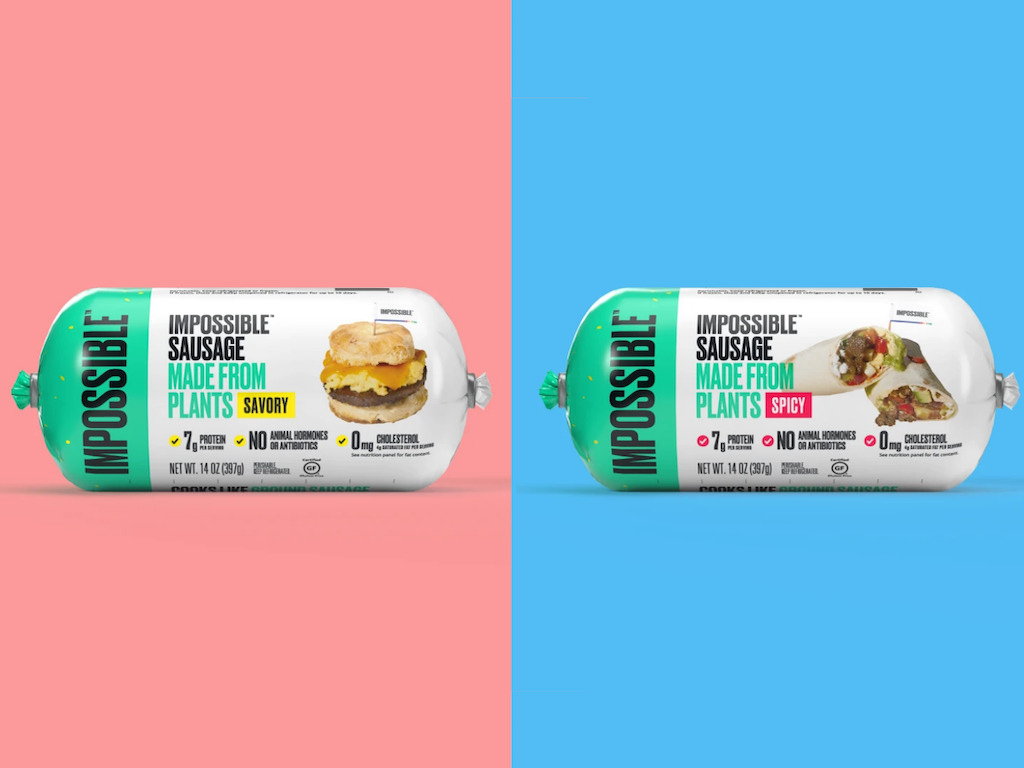3 Mins Read
Impossible Foods is launching its second retail product. Leading U.S. supermarket chains including Kroger, Albertsons, Safeway, Wegmans, and Stop & Shop are now stocking Impossible Sausage.
The Impossible Sausage launch is part of Impossible Foods’ efforts to replace animal meat by 2035. The sausages, which come in savory and spicy flavors, made their foodservice debut last June, appearing at restaurants including Burger King and Starbucks.
Impossible sausage
Like its vegan burgers that look, cook, and taste like beef, Impossible Foods’ Sausage aims to mimic the taste and texture of traditional pork sausages. Impossible Foods says its vegan sausages contain 30 percent fewer calories and 47 percent less fat than pork sausage.
The brand says the vegan meat is better for the environment, too, boasting 79 percent less water used and 41 percent less land needed.
While the retail prices of Impossible Burgers have decreased in recent years, achieving price parity with some higher-priced beef such as organic, the Impossible Sausage is expected to cost as much as 25 to 35 percent more than pork sausage initially.

How Impossible Foods gets its meaty taste and texture
Impossible Foods has been targeted by critics for its use of genetically modified yeast and the controversial ingredient soy leghemoglobin (SLH), also called heme, that comes from the root of GMO soybeans. This novel ingredient gives the brand’s burgers and sausages their meaty taste and texture.
But critics, like the Organic Consumers Association and GM Watch say SLH does not have a history of safe use in food. They say that’s because it comes from the root of the soy plant, which humans don’t typically consume. As a genetically modified crop, soy is also routinely exposed to the herbicide glyphosate, which has been linked to a number of human health issues, including some forms of cancer.
The ingredient came under further scrutiny after Impossible Foods submitted it to FDA-required animal testing in order to receive a safety status called GRAS (Generally Recognized As Safe). That study was a one-time occurrence that took the lives of nearly 200 rats.
Animal rights organization PETA slammed Impossible Foods for the decision. “It’s impossible for PETA to get behind the Impossible Burger,” the group said in a blog post, that has since been taken down. Impossible Foods justified the decision, saying countless more lives would be spared with the FDA approval. And not just animal lives—reducing animal protein has been linked to longer life in adults and reduced risks of heart disease and other life-limiting illnesses.

Replacing meat
Impossible Foods began selling its burgers in retail in 2019 after receiving the FDA approval for heme. It’s now sold in more than 20,000 supermarket and retail locations. In the Impossible Foods 2019 Impact Report Letter, founder Pat Brown said the company has a “simple mission—to replace the use of animals as a food-production technology, globally, by 2035.”
Rumors began circulating earlier this year that Impossible was positioning itself for an IPO; rival vegan meat brand Beyond Meat went public in May 2019. Impossible, which has raised more than $1.5 billion to date, is expecting a valuation of $10 billion, experts say.
The brand also recently announced the launch of vegan chicken nuggets, putting it toe-to-toe with Beyond Meat, which recently launched its own vegan nuggets.
Impossible Foods keeps its eyes on the goal of replacing meat even though there’s a long road ahead, Brown says. “To achieve our 2035 goal, we still need to scale up more than 100,000-fold. That means that on average, we need to double our production, sales and impact every year for the next 16 years.”



